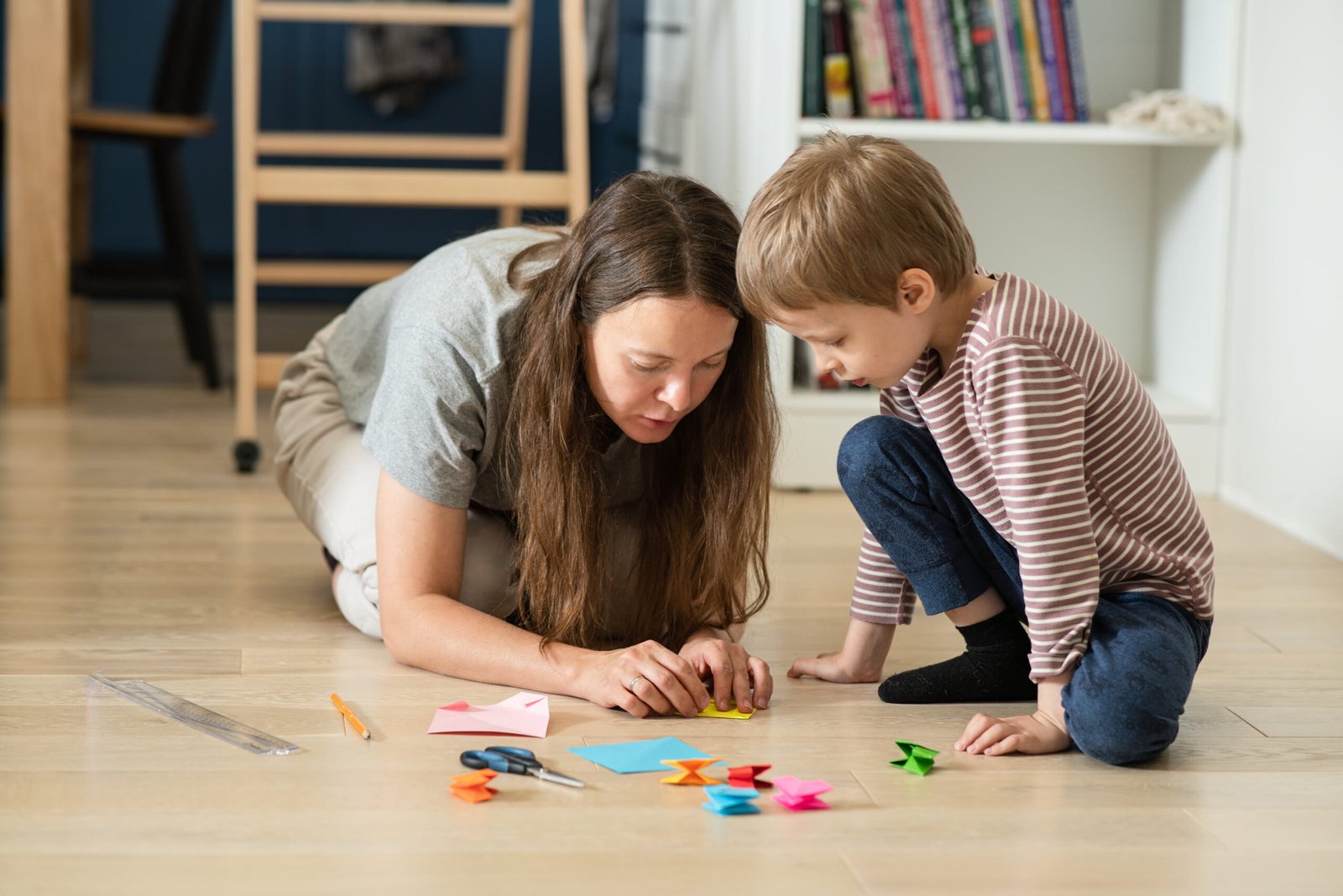The Power of Showing Up
There’s a moment every parent of a child with autism experiences—the moment when you realize you don’t have all the answers. Maybe it’s the diagnosis day, maybe it’s a particularly hard therapy session, or maybe it’s one of those ordinary mornings when even putting on shoes feels like climbing Mount Everest.
Here’s what I want you to know: you are enough, and your presence matters more than you think.
When it comes to autism therapy, professionals play an essential role, but the heart of a child’s progress is found in the daily moments of connection, patience, and love from their family. This isn’t about being a perfect parent. It’s about showing up, day after day, in all of your messiness and all of your strength.
Why Family Involvement Matters: The Science of Belonging
Research tells us that children with autism make greater progress when their families are actively involved in therapy. Not because parents suddenly become therapists, but because a sense of safety and belonging is the foundation of all learning.
Your child doesn’t just learn during structured therapy sessions. They learn when you read to them at night, when you wait patiently for them to finish a sentence, when you celebrate small wins with genuine joy. They learn through your presence, your touch, your steadiness.
This isn’t about being the perfect parent—it’s about being a present one.
How Families Can Support Autism Therapy (Without Burning Out)
If you’ve ever thought, “I don’t know if I’m doing this right,” you’re not alone. There’s no one-size-fits-all approach, but there are ways to create an environment where your child can thrive.
1. Consistency is the Secret Sauce
ABA therapy works because it focuses on repetition, reinforcement, and predictability. You can bring that into your home by creating small, structured routines.
- Use visual schedules to help your child understand what’s coming next.
- Practice skills from therapy at home in a low-pressure way—like using turn-taking games at the dinner table.
- Find opportunities for praise and encouragement—even for tiny moments of progress.
Small, steady actions repeated over time create real change.
2. Open and Honest Communication with Therapists
You are the expert on your child. Therapists may have the training, but you know your child’s heart. Speak up. Ask questions. Share what’s working and what isn’t.
Instead of asking, “How did today’s session go?” try:
- “What’s one small skill we can practice at home this week?”
- “What was a win today, and how can we build on it?”
- “What signs of progress should we look for outside of therapy?”
This journey is a partnership, not a one-way street.
3. Creating a Safe and Supportive Environment at Home
Children with autism experience the world in unique ways. Some days, even a trip to the grocery store can feel overwhelming. Your home can be a haven—a place where they can regulate, rest, and recharge.
- Identify sensory triggers (bright lights, loud noises, unexpected changes) and minimize stressors where possible.
- Use calm-down spaces with sensory-friendly tools like weighted blankets, noise-canceling headphones, or fidget toys.
- Help siblings understand autism so they can support their brother or sister with empathy and patience.
A home filled with acceptance and understanding is the best therapy of all.
4. Facing the Hard Stuff (Because It’s Not Always Easy)
Let’s be honest. This is hard work. There will be days when you feel exhausted, overwhelmed, and unsure if you’re making any difference at all.
Let’s name some of the hard things:
- The emotional weight of watching your child struggle.
- The financial stress of therapies and services.
- The burnout from constant advocating, explaining, and educating.
If any of this resonates, here’s what I want you to hear: You are not alone.
Find your community. Whether it’s an online support group, a local autism parent network, or one trusted friend who just gets it—lean in. Connection is the antidote to burnout.
And don’t forget your own self-care. Your child needs you healthy, whole, and human.
5. Encouraging Connection Beyond Therapy
Progress doesn’t just happen in therapy rooms. It happens on the playground, at family dinners, during bedtime stories. Social skills take practice, and children with autism benefit from safe opportunities to engage with others.
- Look for autism-friendly playgroups or sensory-friendly community events.
- Set up low-pressure playdates with understanding friends.
- Celebrate small social victories, like responding to a greeting or making eye contact.
Connection is built in tiny moments, not grand gestures.
Conclusion: You Are Enough
Here’s the truth: You won’t always get it right. You’ll have days when you lose your patience, when you wonder if you’re doing enough, when you feel like you’re failing.
But showing up, imperfectly and wholeheartedly, is more than enough.
Your child doesn’t need a perfect parent. They need you. The way you encourage them, advocate for them, love them fiercely—it matters more than any therapy technique.
So keep going. Keep showing up. Keep believing that small, consistent love will create big, lasting change.
And when in doubt? Just love them exactly as they are.






0 Comments